Europe must help close Guant?namo
Europe must seize the opportunity presented by Obama’s desire to close Guantanamo

Senior Policy Fellow
Human rights; democracy; justice; North Africa (especially Egypt and Tunisia); war crimes; drones and counterterrorism; US foreign policy
English, conversational French
Anthony Dworkin is senior policy fellow at the European Council on Foreign Relations. He leads the organisation’s work in the areas of human rights, democracy, and justice.
Among other subjects, Dworkin has conducted research and written on European and US frameworks for counterterrorism, the European Union’s human rights strategy, and the pursuit of justice in the international response to mass atrocities. Since 2011, he has also followed political developments in North Africa after the Arab uprisings, with a particular focus on Egypt and Tunisia. Before joining ECFR in 2008, Dworkin was executive director of the Crimes of War Project, an NGO that worked to raise public and media awareness of the laws governing armed conflict. He co-edited the book Crimes of War: What the Public Should Know (2nd ed., 2007) and wrote extensively for the project’s website about war crimes and contemporary conflict, in addition to conducting training sessions on the laws of war and international justice in several countries.
Dworkin has written and spoken widely on questions related to human rights, democracy, and justice. He is a contributing editor for the British magazine Prospect and has written for several other publications, including the Financial Times, The Guardian, the International Herald Tribune, the Washington Post, El País, the New Statesman, the Times Literary Supplement, Foreign Policy, and World Politics Review. He has been a member of the Terrorism/Counterterrorism Advisory Committee and the London Advocacy Advisory Committee of Human Rights Watch. Dworkin has also worked as a producer and reporter for BBC Current Affairs.
Europe must seize the opportunity presented by Obama’s desire to close Guantanamo
The EU has an opportunity to influence President Obama’s efforts to reform US counterterrorism policy
Obama is redefining the fight against terrorism. But he has come up against some stiff criticism and urgently needs the EU’s help
Now that the fighting in Sri Lanka is over, attention must focus on reconciliation
In a joint research project with FRIDE, ECFR looks at the EU?s record in Azerbaijan, Belarus, Ukraine, Jordan, Lebanon and Morocco
Anthony Dworkin calls for a moment of reflection in the light of the anniversary of the human rights declaration
Obama’s election offers the opportunity for the EU and the US to come together in pledging to fight terrorism within the framework of fundamental human rights
The indictment of Sudan’s president marks a critical moment for the International Criminal Court. European supporters of international justice should give it their backing
In a ruling announced today, the European Court of Human Rights has struck a significant blow in defence of Europe’s moral standing in the fight against terrorism
The gap between the EU’s rhetorical and actual commitment to democracy and human rights could lead to growing international scepticism about the EU’s role on the global stage
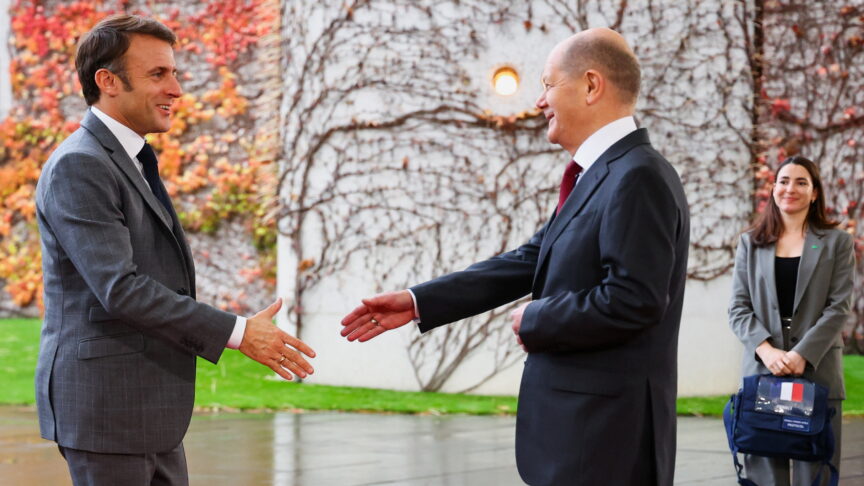
The Maghreb policies of the four most influential EU member states are diverging – but this fragmentation hinders the EU’s long-term interests in the region
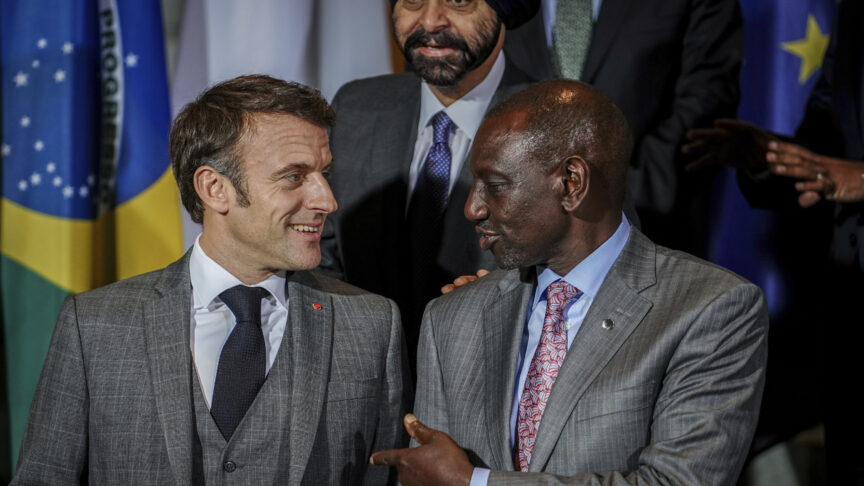
European countries are rethinking their policies on multilateral development. In the face of intersecting crises, they should embrace a new, far-sighted vision for development cooperation
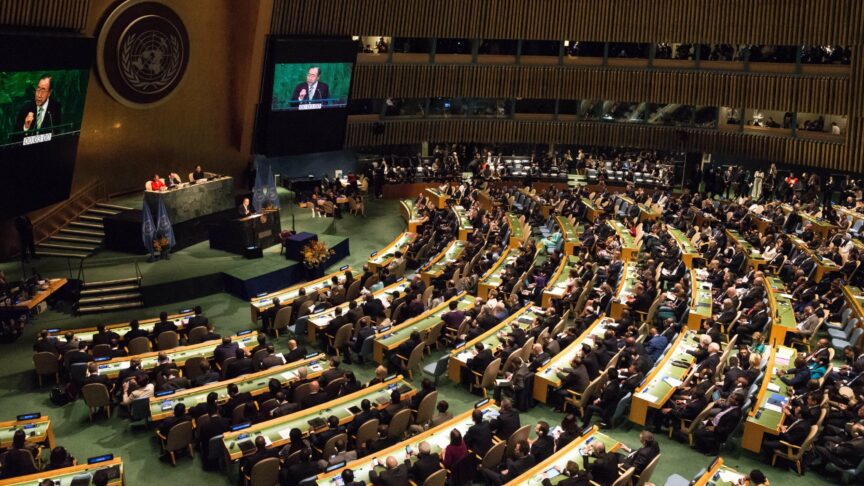
Geopolitical tensions are hindering progress in multilateral climate cooperation. The EU should continue to supplement negotiations under the UN climate convention with smaller initiatives that bring together like-minded, ambitious partners
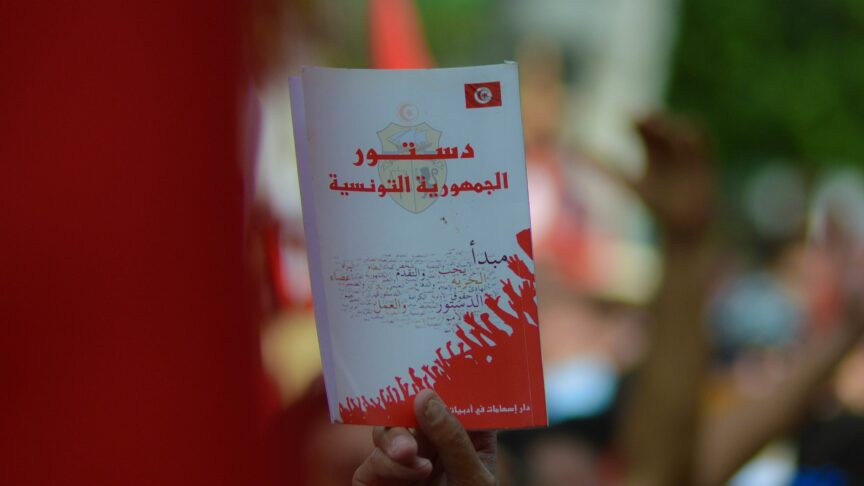
Tunisia’s new constitution would create an unaccountable presidency. European policymakers should state that it is not genuinely democratic, while continuing to support the country economically
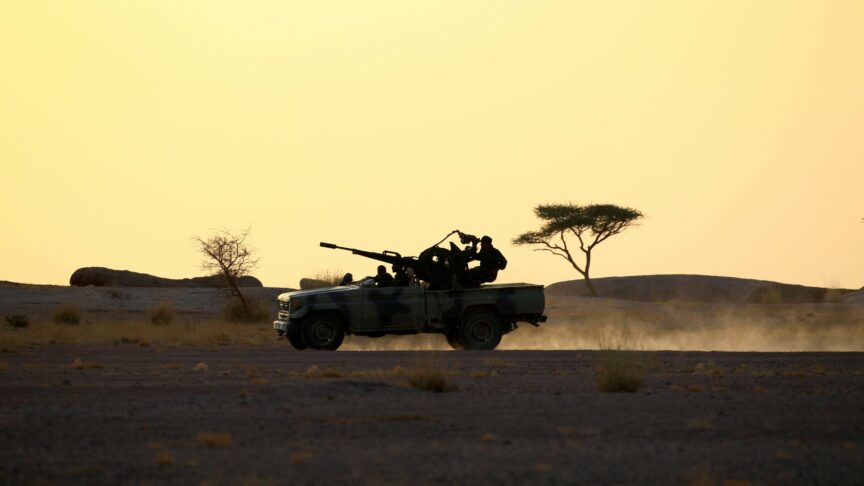
Europeans should pay closer attention to rising tensions between Morocco and Algeria. A more balanced European approach to both countries could help stave off instability in north-west Africa and the Mediterranean
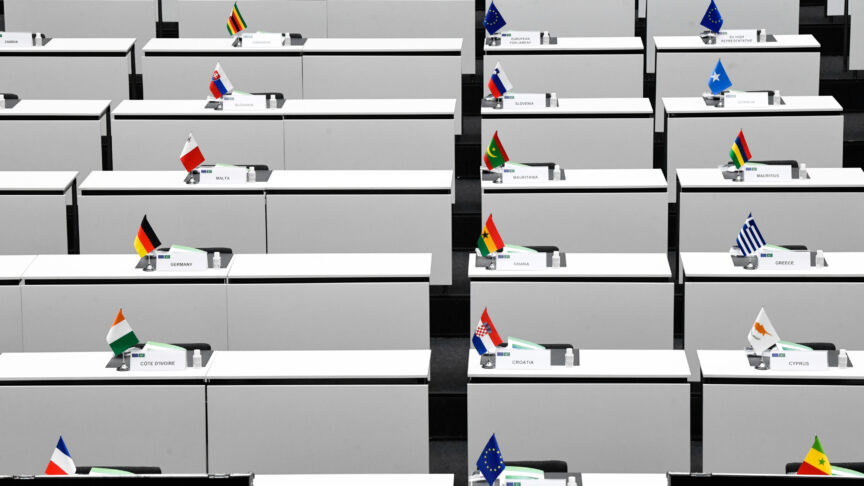
The EU should promote a new global compact on health, matching countries’ commitment to surveillance and reporting of pathogens with support for stronger healthcare systems and greater equity in the allocation of countermeasures
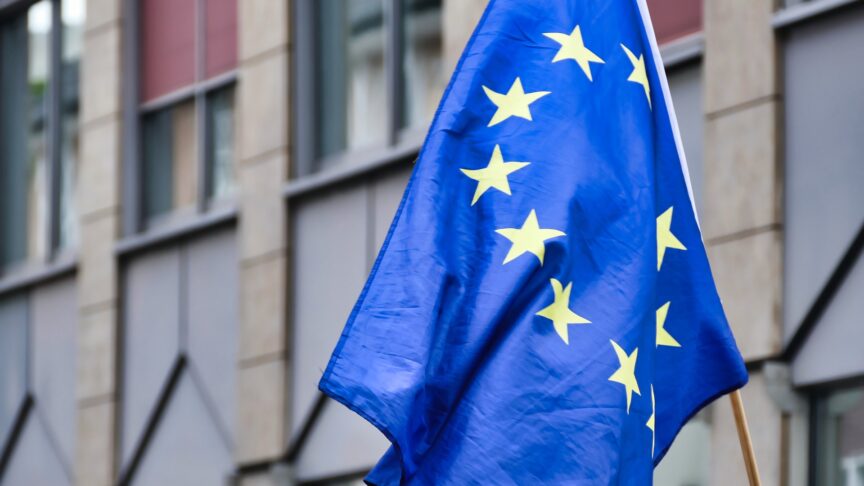
The covid-19 pandemic has brought forward a new agenda for multilateralism, focused on areas including global health, economic recovery, climate, technology, and trade
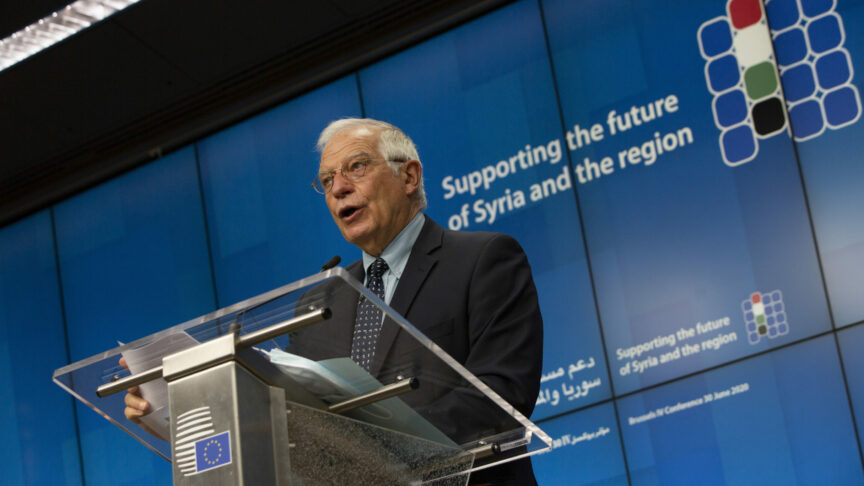
To achieve greater sovereignty, Europe needs to push back against rival powers, build leverage in armed conflicts, and be more effective in supporting reform
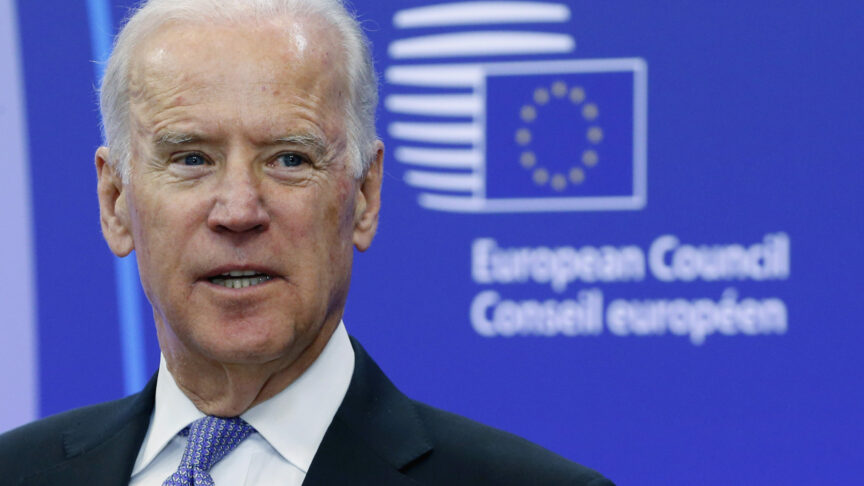
The Trump years galvanised Europeans’ efforts to strengthen their own sovereignty; they now need to agree concrete offers they can make to the new administration
North African countries, each for their own reasons, are increasingly turning their attention towards sub-Saharan Africa
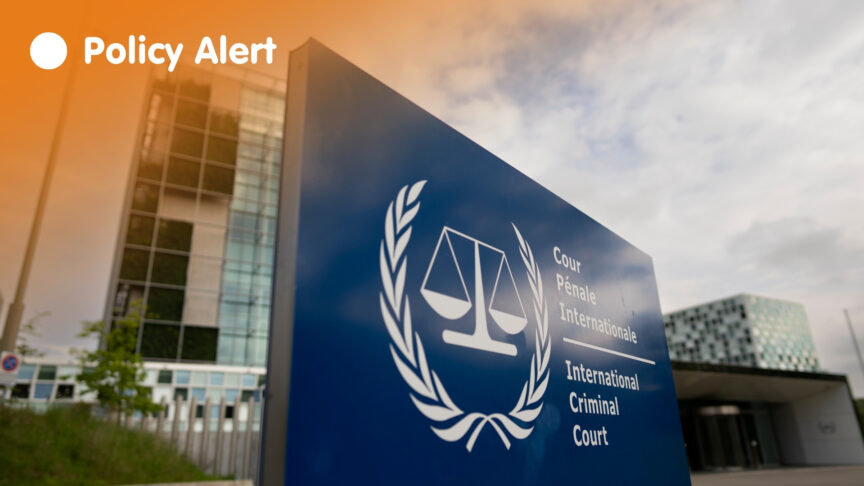
The International Criminal Court is likely to approve arrest warrants for leaders of both Hamas and Israel. European countries should ensure they do not undermine the process and explore ways it could help promote an end to the conflict
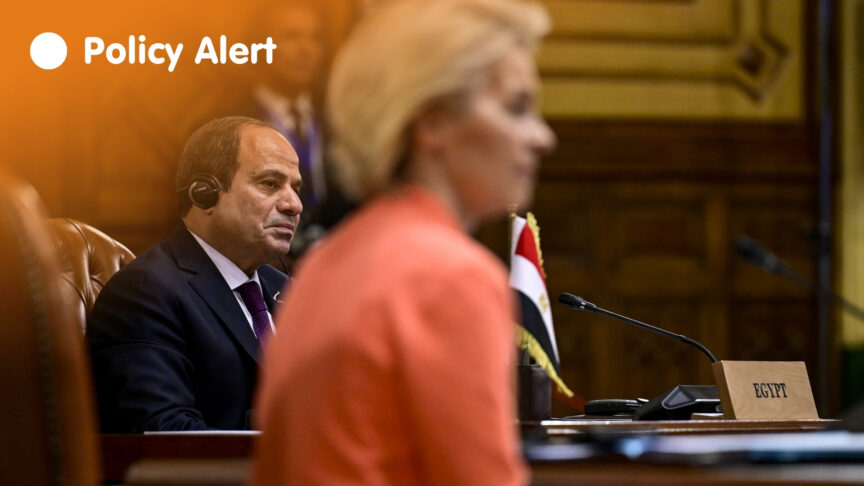
The EU should release funding to Cairo only if it undertakes following meaningful economic reforms
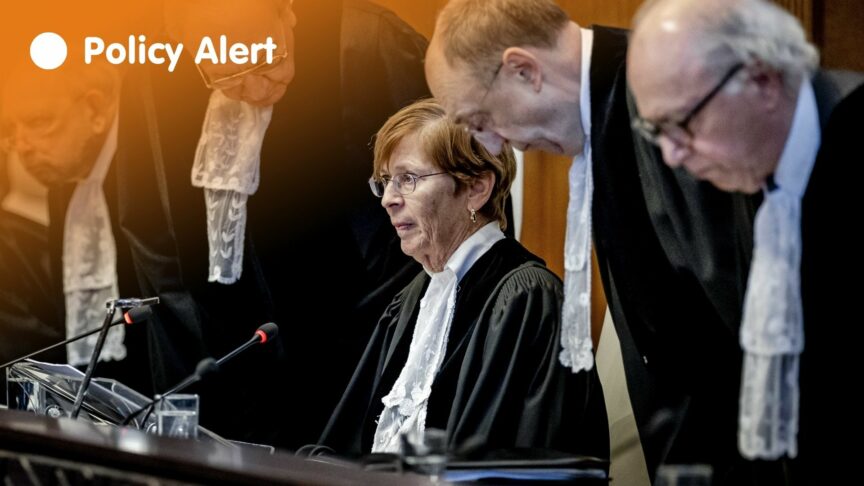
Despite their disagreements over the case, it is crucial that European countries support the implementation of the ICJ’s provisional measures
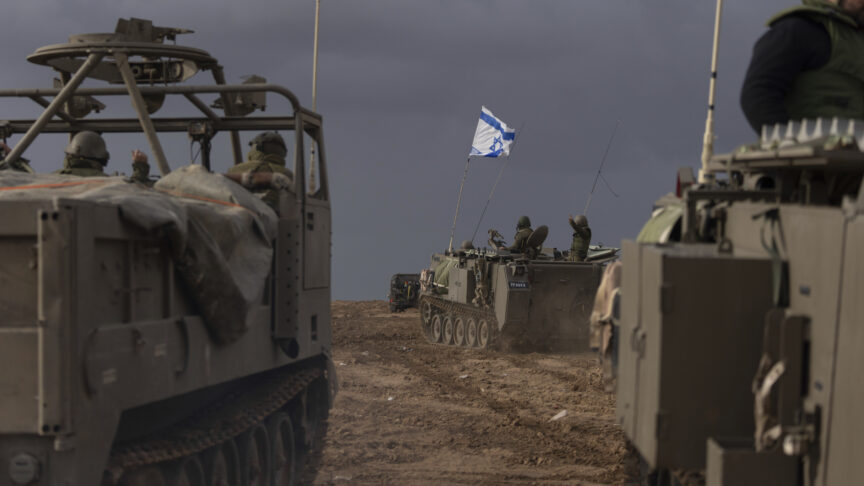
European leaders agree that Israel has the right to defend itself as long as it complies with international law. It is time that they recognise the limits those laws set
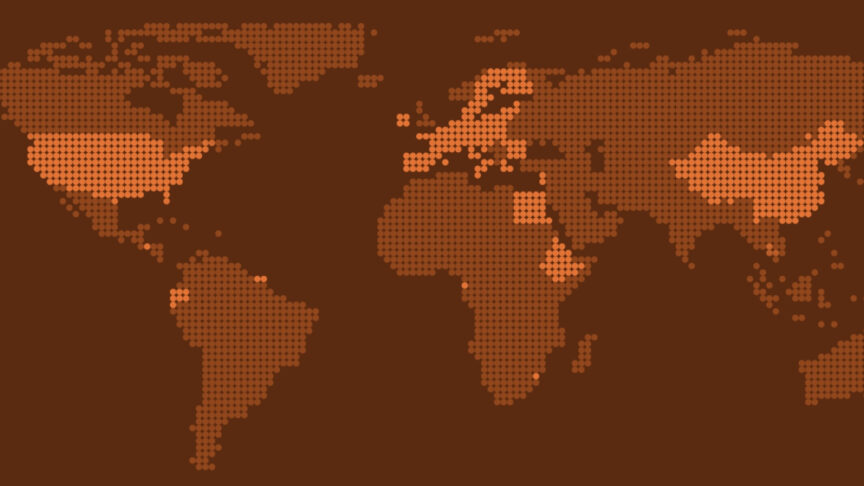
This collection of nine insightful essays illuminates the strategies employed to advance European interests and values within this evolving global polity of overlapping cooperative frameworks
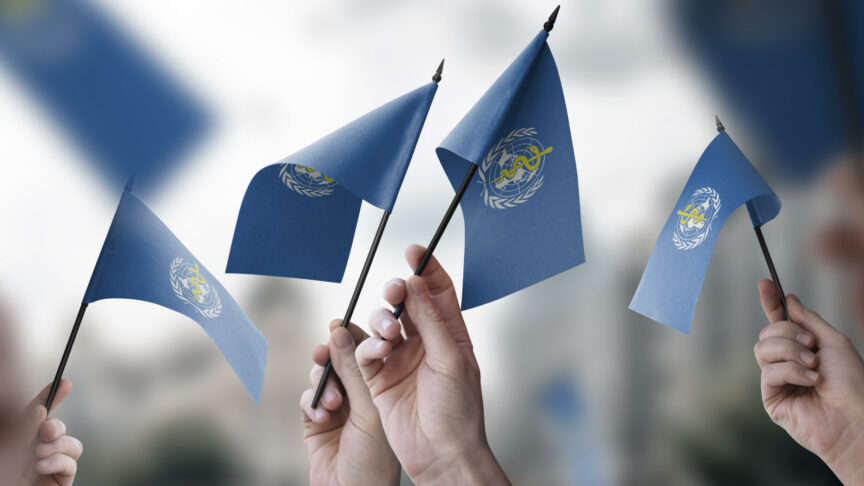
A lack of coordination among the world’s states hindered the global response to covid-19. The same problem is now disrupting international efforts to put in place a more effective system to prepare for future pandemics
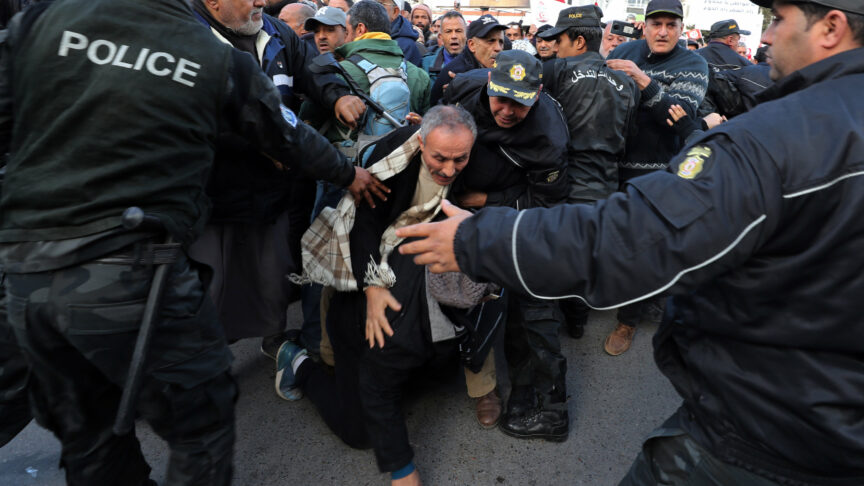
The EU has invested heavily in Tunisia’s transition to democracy since 2011. Now it must stand up for the rule of law and for the rights of those under threat
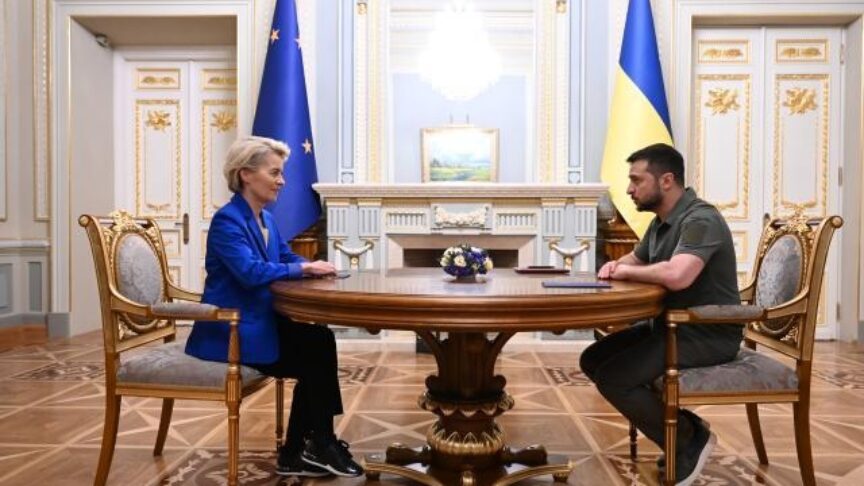
A UN-backed court could reinforce condemnation of Russia’s aggressive war and reduce Putin’s legitimacy on the international stage. But its establishment and success will depend on the commitment it receives
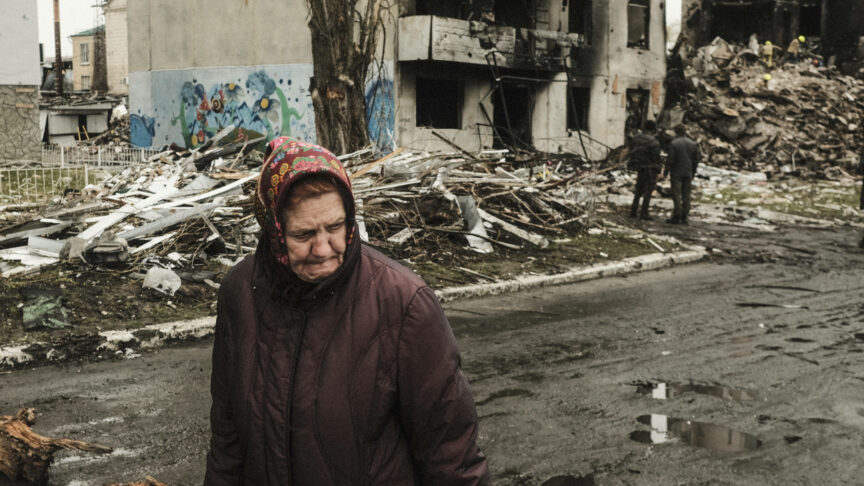
Widespread violations of international humanitarian law appear to be part of the Russian way of war. The international response to such crimes could have severe geopolitical consequences for Russia
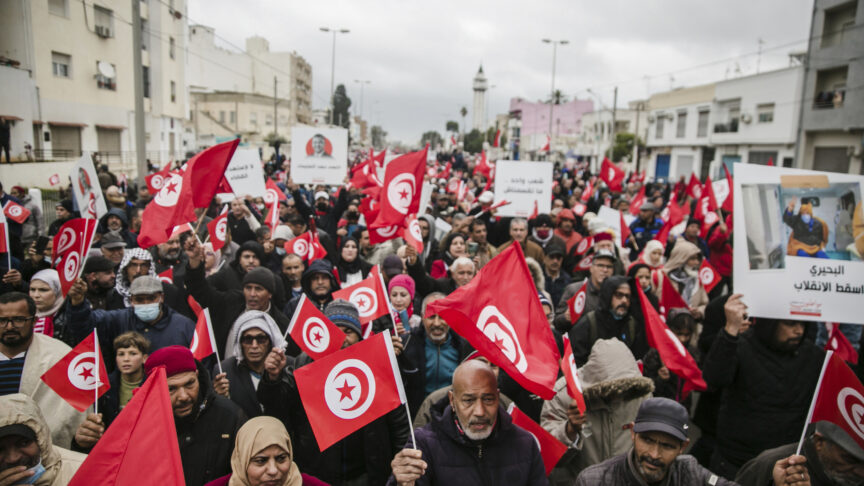
Tunisia’s president seems unwilling to compromise with his political opponents. But the EU can help set limits on his behaviour through a combination of financial assistance and public statements
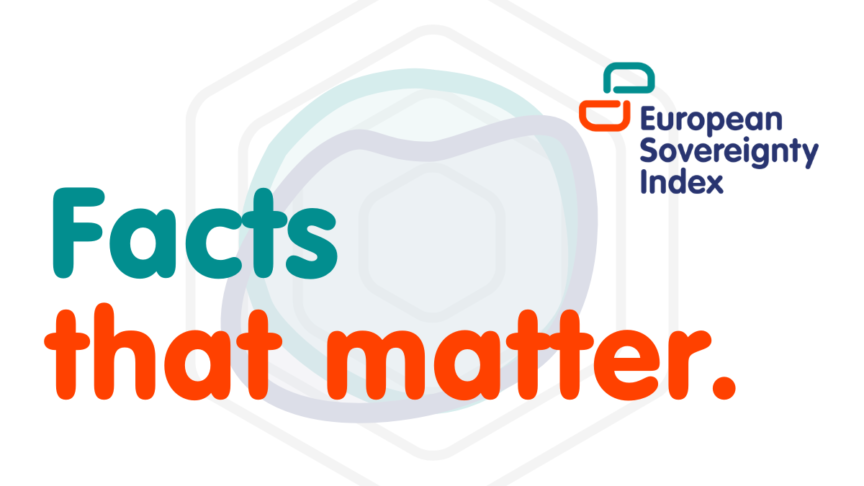
The EU can overcome the new challenges it faces and can shape the global order. To achieve this, Europeans will need to improve their joint capacity to act
Turmoil in the Middle East and north Africa directly affects Europeans. Yet their influence in the region has never been weaker. This project maps Europe’s role across the Middle East and north Africa, making the case that Europeans can do more to leverage their influence in pursuit of core interests

Mark Leonard welcomes Anthony Dworkin to discuss the role of international law and justice in an increasingly fragmented world

This week, ECFR senior policy fellow, Susi Dennison, takes over the podcast to talk about international cooperation on global health
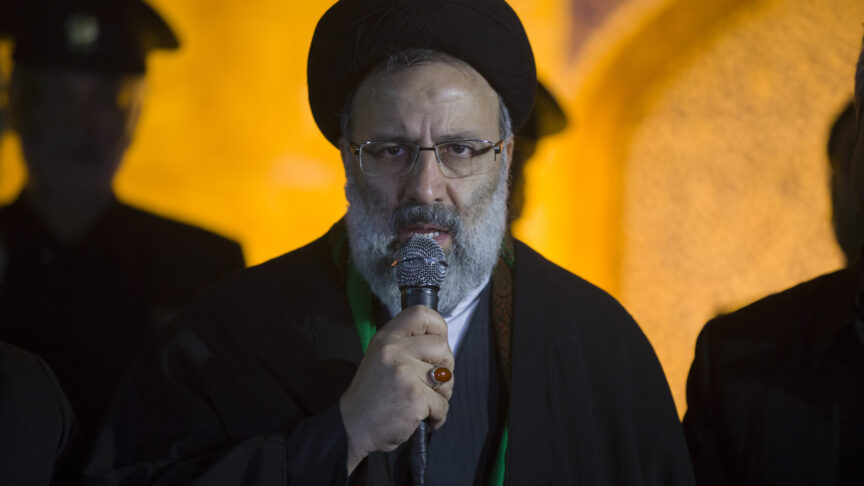
Does the election of Raisi represent a significant change of direction following the term of President Rouhani?
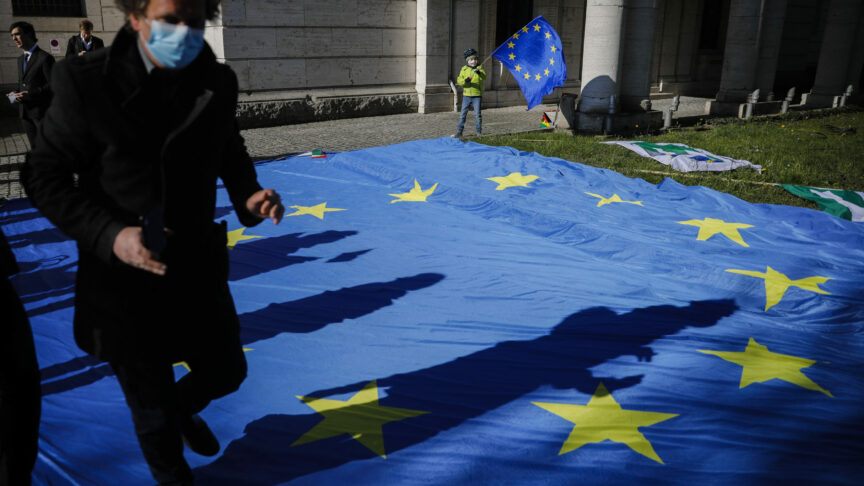
How well does the transatlantic alliance still fit with the way that Europe and the United States now see their goals in foreign policy?
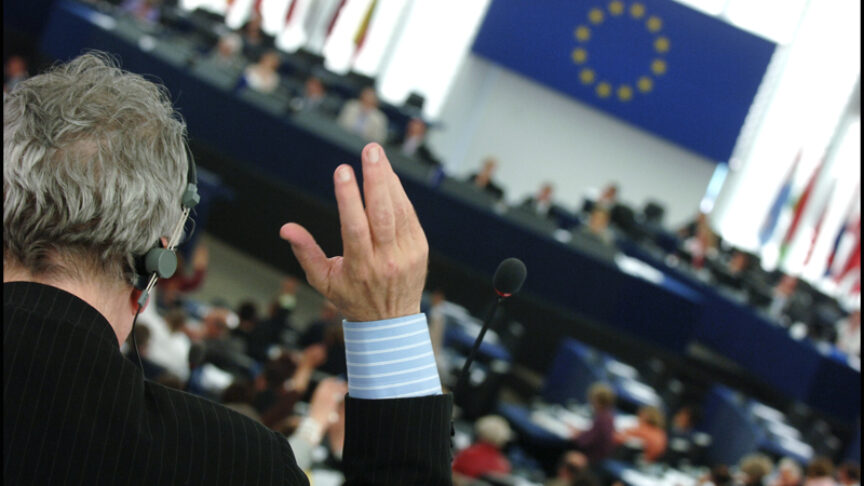
How can Europe adapt its strategies for multilateralism in this competitive world and what would they look like?

How do we go forward with the global distribution of covid-19 vaccines and what kind of geopolitical implications do surround this endeavour?
“If it’s about Europe´s role in global health, a big part of it is Europe's health sovereignty which we want to make one of the…
Recently, we have seen funding cuts to the WHO in the middle of the coronavirus crisis and national governments closing borders instead of calling for…
Word on the street seems to suggest that technology will be the way out of the coronavirus crisis and the lockdowns in many European countries. This…
Anthony Dworkin stands in for our usual host, Mark Leonard, to de-brief the Berlin Conference on Libya. Together with the ECFR’s experts Asli Aydıntaşbaş, Tarek…
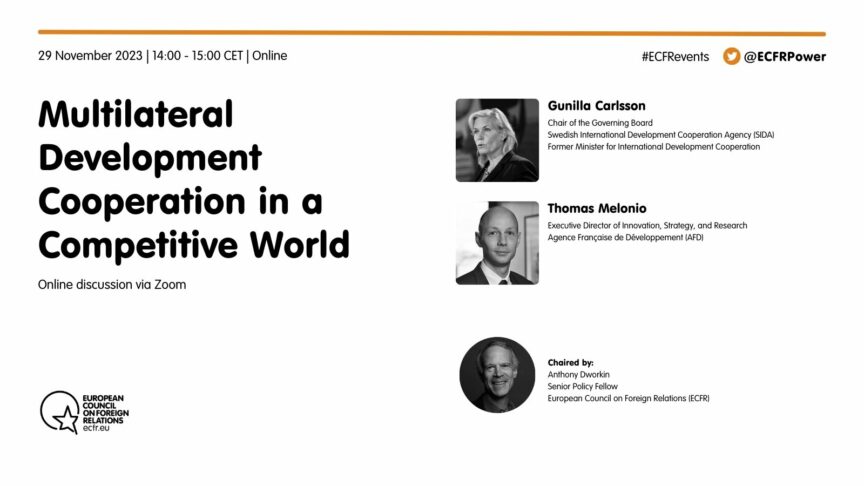
Please register for our online discussion on “Multilateral development cooperation in a competitive world” on Wednesday 29th November at 14.00-15.00 CET. European countries are rethinking their…
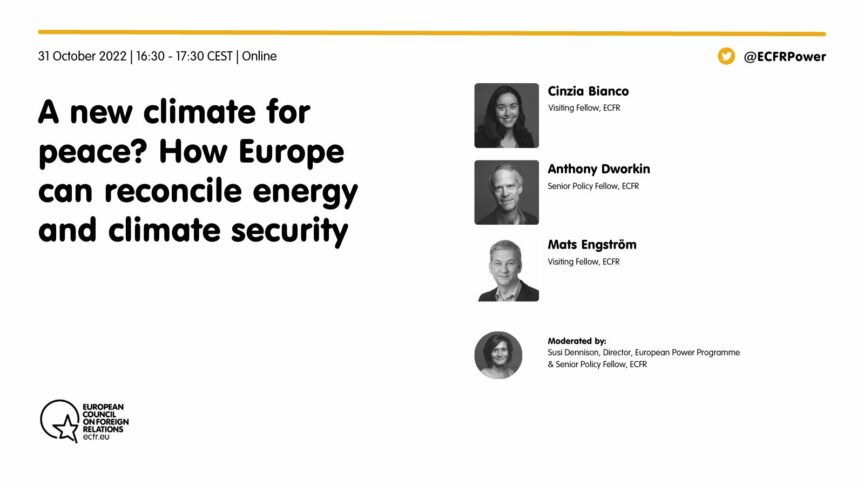
Cinzia Bianco, Mats Engström and Anthony Dworkin were in conversation with Susi Dennison to hear how Europe can best meet its energy security interests all the while preserving its credibility as a climate superpower
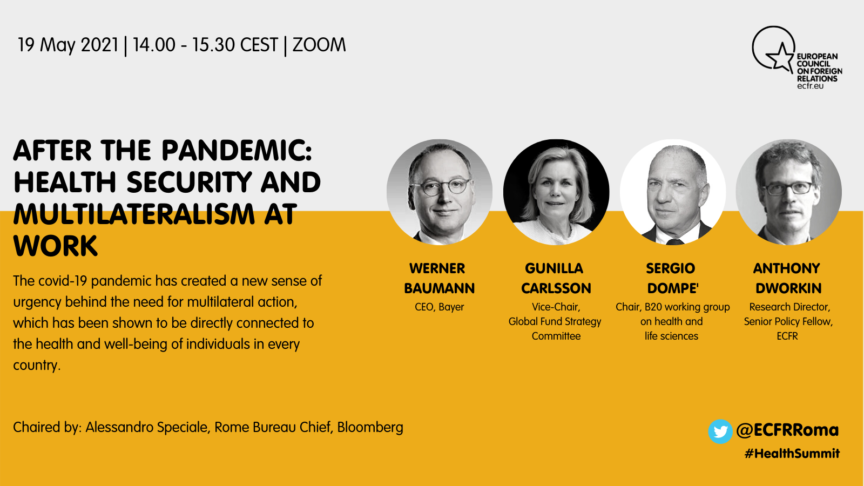
The covid-19 pandemic has created a new sense of urgency behind the need for multilateral action